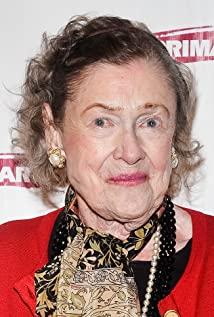A movie that is more famous for bgm than movies, "The Graduate", also happened to be about to become a "graduate", so I turned on the player at 2:30 in the drowsy afternoon.
The narrative content of the film is not complicated: it tells the absurd story of a graduate who has a mother and daughter who end up robbing their marriage for thousands of miles. What is intriguing is the evolution of the character's character in the movie: in the first small part, the male protagonist has an empty expression and stiff behavior, always holding a blank face and repeating back and forth "I don't know." In particular, one detail impressed me. Profound: Before having sex with Mrs. Robinson for the first time, the panic-stricken Ben was once bound by moral shackles, trying to stop this absurd lover relationship in time. But in the end, Mrs. Robinson couldn't help her aggressive approach and climbed into bed in the same dazed darkness as he was. This is the male protagonist—a graduate who, despite his wealthy background and excellent grades, is still confused, even having sex with the lights turned off.
Until he listened to Mr. Robinson's casual exhortation: "Ben, you should relax" after vigorously resisting Mrs. Robinson's temptation; until he was able to grasp Mr. Robinson's words like a life-saving straw, and then Cobwebs of lust with his wife (ironically)—Ben seems suddenly at ease, no longer bound by moral condemnation and identity anxieties. In the alternating reincarnations of dark nights and dazzling days, he just floated lazily on the surface of the water in the face of his parents' questions about doing nothing, and spit out an answer: "Because this is very comfortable..." It was like an excess oil film.
At this point, the original image of the bewildered graduate has faded quietly—he is no longer in a hurry to search for answers in the future, but plunges into the immediate pleasure at his fingertips, backed by Mr. Robinson’s advice—“Relax. Relax" - grand-sounding laissez-faire.
Then came Elaine, who was repeatedly mentioned by Mr. Robinson and Ben's parents. Before another sex, Ben and Mrs. Robinson got into an argument, and Ben's anger was very strange: Mrs. Robinson forbade him to date his daughter (this seems to be a normal thing), but Ben was furious and insisted that Mrs. Robinson thought He doesn't deserve Elaine. In the end, Ben, who was originally furious, chose to compromise after staring at the black silk that Mrs. Robinson pulled up to her thigh, and reluctantly vowed not to date Aileen. But the promises that appear in the movie seem to be made to be broken - Ben claims to have been forced to date Elaine by his parents and fell in love with her because of it.
In the future, the original in the plot changed and became a "determined love defender". He overcomes unimaginable hardships and finally uses a church cross to repel the crowd, drags Elaine, the bride who almost married someone else, to flee the wedding and get on the bus. From there, the film ends.
From this point of view, Ben's psychology has almost undergone the exact opposite change: from being cautious at the beginning, to degenerate with peace of mind, and finally becoming a love seeker with a clear goal. After deciphering the cocoons, we can draw a clue to Ben's character development: from panic without purpose, to panic without purpose, and finally determine the purpose and do our best for it. At first glance, it seems to be an inspirational story of "confused graduates find their goals in life and finally find love", but in fact it is not the case. If we look at this work as a whole, we will find that the above interpretation cannot explain the emptiness that reappears on the face of the film at the end, the language of the camera lens that is from a side-view and a cold attitude from beginning to end, and cannot explain the alienation of the film. , the grotesque atmosphere, and the recurring raving melancholy bgm - it only captures a superficial phenomenon, robbed by the simple ethical level plot. Ben didn't really find his purpose in life, he was just a passive self-deceiver.
Looking back at the above plot, we will find that the movie has two nodes: one is Mr. Robinson's "advice" to let Ben relax; the other is Ben's quarrel with Mrs. Robinson, which broke out over "is it worthy of Elaine". The reason why it is called a node is that Ben's words and deeds after these two events have almost become their reality contrast. Laissez-faire floating and paranoid chasing of love are not so much infatuation as infatuation, both of which are actually excuses for escaping from self-selection, and a manifestation of self-deception. The former is easy to understand, and Mr. Robinson's suggestion just fills Ben's confusion, so that his aimless life is inserted with a purpose - relaxation. But the essence of the latter is the opposite - you don't let me do what I do. Ben uses the "sublime love" praised by the world as a fig leaf to cover up the dilemma that I still have no purpose in my heart - I have my purpose and choice, and that is to pursue love. Rather than saying that he was a brave young man who was deviant and desperate for love, it was Mrs. Robinson's ban that happened to touch the barb of his inferiority and gave him a psychological hint from which he could obtain a sense of sacred mission. Ben accepted the "anti-expectations" of others in the dark to swear the existence of self-awareness.
In this way, the plot behind it is easy to understand. Ben, who was empty and had nothing in his heart, put all his energy on "chasing love", and this purpose completely dominated his will. In fact, his ego had already been completely lost. Therefore, after the successful marriage robbery, he once again lost the purpose of life, completely lost the basis of existence, and once again showed confusion on his face. To sum up, the above-mentioned problems worth thinking about are easily solved. The crisis that graduates face to lose their "college student" status is fundamentally the epitome of fear, anxiety and confusion when people are in a state of being thrown away. The lens with limited objective perspective, the interspersed bgm and the creation of the atmosphere are the best catalysts for this deep meaning. The whole grotesque movie - the incestuous love with a mother and daughter, the hijacked wedding ending, the hilariously exaggerated sequences (wetsuit, first house, date with Elaine) are actually The use of "paradox" to evolve the truth of literature is to sacrifice the truth of reality in exchange for the crusade against the real, common and dazed state, resulting in a state of alienation and self-deception in which people are floating in the world and lose their self-consciousness, thus satirizing real life. fact.
In addition, there are many symbolic plots in the film. For example, before having sex with Mrs. Robinson for the first time, there was still awe of ethics and morality, but in the final robbery of the film, ethics were smashed with a cross that symbolized ethics; parents in the swimming pool pressed Ben into the water again and again, as if relatives were heavy and breathless. expectations; the habit of having to turn off the lights to blind the eyes when making love... These all imply that Ben's change is not a kind of progress, but a manifestation of intensified confusion.
View more about The Graduate reviews











